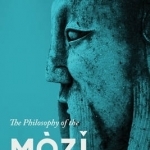The Philosophy of the Mozi: The First Consequentialists
BookThis item doesn’t have any media yet
2016 | Philosophy, Psychology & Social Sciences
Mohism was an ancient Chinese philosophical movement founded in the fifth century BCE by the charismatic artisan Mozi, or "Master Mo." Its practitioners advanced a consequentialist ethics, along with fascinating political, logical, and epistemological theories, that set the terms of philosophical argumentation and reflection in China for generations to come. Mohism faded away in the imperial era, leaving the impression that it was not as vital as other Chinese philosophical traditions, yet a complete understanding of Confucianism or Daoism is impossible without appreciating the seminal contribution of Mohist thought. The Philosophy of the Mozi is an extensive study of Mohism, situating the movement's rise and decline within Chinese history. The book also emphasizes Mohism's relevance to modern systems of thought. Mohism anticipated Western utilitarianism by more than two thousand years. Its political theory is the earliest to outline a just war doctrine and locate the origins of government in a state of nature. Its epistemology, logic, and psychology provide compelling alternatives to contemporary Western mentalism.
More than a straightforward account of Mohist principles and practice, this volume immerses readers in the Mohist mindset and clarifies its underpinning of Chinese philosophical discourse.
Related Items:
| Published by | Columbia University Press |
| Edition | Unknown |
| ISBN | 9780231149273 |
| Language | N/A |
Images And Data Courtesy Of: Columbia University Press.
This content (including text, images, videos and other media) is published and used in accordance
with Fair Use.
